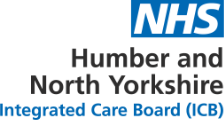Talking, Listening & Working Together - feedback from the June workshop
On July 1st, some of the ways that organisations work together, and plan NHS services are changing, to make sure health and care work together better than they have done in the past. Our local North East Lincolnshire Health and Care Partnership (HCP) will bring together NHS planners, health and care providers, population health experts, the council and voluntary services which means the planning of many services will be done close to where you live by people who know your local area well (others will be planned on a larger scale).
We are hosting a series of workshops to explore how by Talking, Listening and Working Together we can get this right. The second of these was on Wednesday June 15th and partners were asked to invite their members, patient representatives, supporters and service users to join us at Centre4 to explore how we can all Talk, Listen and Work Together to improve health, care and wellbeing in North East Lincolnshire.
The workshop was facilitated by Mel Hannam, Communications and Engagement Lead; and Jonathan Brooks, Engagement Deputy Manager, with NHS North East Lincolnshire Clinical Commissioning Group (CCG), with the support of colleagues from partner organisations and Healthwatch North East Lincolnshire.
The slide set used at the session is attached.
We began with a recap on what we discussed at the April session, and then a showed a short video – How does the NHS in England work and how is it changing – which explained the changes to the NHS which are taking place nationally.
Then, Helen Kenyon, North East Lincolnshire Place Director (Designate) explained the place-based model for integrated care in North East Lincolnshire and how it will provide a better experience for patients when they’re accessing services, with more services based in the community.
Our Health and Care Partnership wants to ensure that local people and communities are engaged and involved in developing health, care and wellbeing priorities and plans. In the first discussion group of the morning, we asked for feedback on the integrated place-based care model, what the benefits of this approach may be for patients, carers, and staff, and what needs to happen in North East Lincolnshire to enable people to manage their own health.
Have we explained enough about what we are trying to achieve in North East Lincolnshire?
- The new model sounds fantastic and a great idea about using resources more efficiently.
- There is a lot of bureaucracy in the NHS that can be cut back. Covid vaccine proved that things can be done quickly.
- System does need to change.
- Better understanding of the complex subject
- IF we can make it work
- Getting all the people signed up to make it work
- Theory and practice
- Is it realistic?
- not convinced GPs will be consistent
- staffing issues and training
- possible impact of any change in government
What are the benefits of this approach for patients, families, and people who work in health and care?
- Patients & families
- less repetitive
- reduced stress
- increased feedback
- creates one care plan for all to access
- computer systems linking together to make appointments etc. more efficient
- Approach is good but won’t see benefits for 2/3 years. Better Clarity
- Good for all patients, but a simple pathway would be needed
- Making initial contact
- It is dependent on all cogs in the chain working well together
- A point of contact supported by the team would work best - people like consistency
- Huge benefits
- Communication amongst themselves knowing what is going on, knowing what’s happening is essential
- People need to be made more aware of the fact that they can share their information, Need in-house promotion. It should be part of registration or a flag on the system when patients reach 18 years old to ask them the question about sharing their data
- Smoother and quicker processes for patients
- Earlier diagnosis
- Better communication between services, meaning patients know where to go and how to self-manage.
- People who work in health and care
- Better access to records & care plans - reduced duplication
- Better co-ordination and communication between services
- Improved efficiencies; fewer gaps and less overlaps
- communication lines open
- would work better
- person-centred approach
- more re-assuring
What needs to happen to enable people to manage their own health well?
- Information/education/communication
- People need educating on where to go.
- Where do people go for information that is easy to understand- no jargon!! And plain English!
- Ensure that communication is better, so people know how to self-manage when they have been discharged and who to go to for more support.
- Education
- Access for advice
- Need clear communication; language must be right; accessible comms for everyone
- Need clear communication & clear pathways
- How will people know they need to self-care?
- Education for parents and children from a young age
- Use a variety of mediums
- Different languages
- All Partners need to be clear and able to support communications
- NHS support services
- Need more services that help people to manage their condition.
- Support for families to help support the patient and need to know who to contact for clarification.
- Long Term Conditions – more specialist nurses who can manage people in the community
- Minor ailments -? community pharmacist
- Long Term Conditions – able to manage once diagnosed, but what happens in between?
- Need to consider young people and the elderly – they are independent but need support.
- Need a central place/point for people to go to access, rather than PCN Network – GP’s spread over different areas.
- Worry about support for those less independent
- Primary Care
- Difficulties getting access to GPs etc – need to improve access. How will people who need support to be independent be supported.
- Confidence to speak to Health Care Professionals – support from PCNs
- Patients own responsibility
- Timeframe – challenge
- Clear timelines across region
- Critical to minor
- Need to be able to measure if people have been able to understand/access
- School meals
- self-care
- different cultural approach
Part 2
In the second half of the session, we started to look at how the Health and Care Partnership could involve local communities in the big priorities which the system needs to work on together. Mel explained what the Health and Care Partnership needs community engagement to achieve, and then in our discussion groups we looked at:
- What do you think is important to get right so that the engagement is effective and enables all our communities can have a say
- Do you think that we need to have some sort of ‘Citizens Forum’ as part of the menu of engagement activity in North East Lincolnshire?
- What does this Forum need to look like and do to make this happen?
What is it important to get right?
- Plain English. If someone encounters jargon it becomes a barrier, and they switch off.
- Accessible venues.
- Seldom heard and ethnic communities. Target people with experiences.
- Be more creative to get people involved.
- Engage on specific topics. Practical experiences being brought to the table.
- Can people join through zoom?! Have support for people to join Zoom.
- Link in with charities better.
- Educating people.
- Communication
- Inclusive
- Multiple sessions to increase attendance/participation
- Needs people & place involvement
- ‘You said we did’ feedback to be given regularly
Citizens Forum
The majority of the groups felt that there should be a citizens forum established for health and care in North East Lincolnshire. The following comments were also received:
- Membership
- Inclusive, specific forums that meet together.
- Representatives from individual forums
- A community forum, elected by the community
- Communities know their community – involve
- Agree with the approach – bring together existing forums in each organisation
- Need to get community to engage in what they want from community forum and elect on
- Purpose of the forum
- People on the Forum do the engaging themselves.
- Cascading feedback post meetings
- Citizens of community ‘my idea is this’ – someone comes back to say that they have done it.
- Works with professionals/board to get to the right answer
- Need real co-production at the beginning of ‘new world’ to develop and improve patient experience
- Communication, where does the information go.
- Meetings
- Hybrid style meeting would accommodate a larger membership, allowing people to meet face to face and via the use of technology (to hopefully encourage a younger cohort)
- Citizen forum platform to be created to keep the meeting live. With a face-to-face meeting taking place occasionally. Using technology for those who are not comfortable to speak up - can submit questions 24/7
- Yes, if it has the right people on board including multi- agency representation, young people, a full age range.
- Agenda – specific topics
- The term ‘forum’ can be off-putting. Be invited rather than put yourself forward.
- Questions about the Citizens Forum: Should it be limited to health? Or go across all the public sectors?
- Health
- Wellbeing – housing, ‘bluelight’ services, mental health, finances, food, etc.
Next steps…
We hope you enjoyed this workshop and hope you will join us again – our next workshop is on Wednesday July 6th, 10am – 12.30pm at Centre4, 17A Wootton Road, Grimsby.
It is important to us to know whether we are supporting or providing services fairly to all groups of people, and we would appreciate it if you could complete this survey - the questions are intended to help us to find out about that. The information you give us will be kept confidentially and stored securely and will only be used to monitor the fairness and effectiveness of our service delivery and employment practices. No personal information which can identify you, such as your name or address, will be used in producing equality reports. You do not have to complete this form or some of the questions if you do not want to and it will not affect your access to services or how we treat you.


